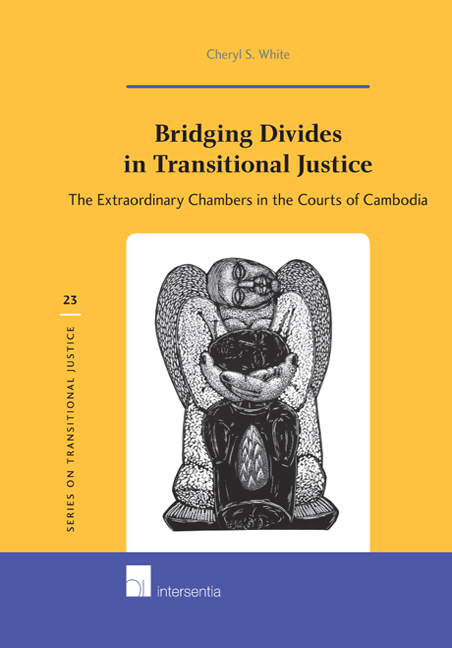Book contents
- Frontmatter
- Acknowledgements
- Contents
- Table of Cases
- Table of Legislation
- Table of Treaties
- List of Abbreviations
- Chapter 1 Introduction
- Chapter 2 Trials in Transitional Justice Theory
- Chapter 3 The Development of the Transitional Trial
- Chapter 4 The Creation of the Extraordinary Chambers in the Courts of Cambodia
- Chapter 5 Inquisitorial Criminal Procedure at the ECCC
- Chapter 6 Trial Dialogue in Case 001
- Chapter 7 The Voice of the Victim
- Chapter 8 The Voice of the Court in Judgment: Case 001
- Chapter 9 Conclusion
- Bibliography
- Index
- About the Author
Chapter 6 - Trial Dialogue in Case 001
Published online by Cambridge University Press: 27 September 2018
- Frontmatter
- Acknowledgements
- Contents
- Table of Cases
- Table of Legislation
- Table of Treaties
- List of Abbreviations
- Chapter 1 Introduction
- Chapter 2 Trials in Transitional Justice Theory
- Chapter 3 The Development of the Transitional Trial
- Chapter 4 The Creation of the Extraordinary Chambers in the Courts of Cambodia
- Chapter 5 Inquisitorial Criminal Procedure at the ECCC
- Chapter 6 Trial Dialogue in Case 001
- Chapter 7 The Voice of the Victim
- Chapter 8 The Voice of the Court in Judgment: Case 001
- Chapter 9 Conclusion
- Bibliography
- Index
- About the Author
Summary
INTRODUCTION
Exploring Osiel's conception of the transitional trial as a creative site wherein opposing accounts of the past are mediated by flexible application of procedural rules, this chapter examines the dialogue of the first trial in the Extraordinary Chambers in the Courts of Cambodia (ECCC), the trial of Kaing Guek Eav (alias Duch), known as Case 001. It begins with a discussion of the accused from the case file prepared by the Co-Investigating Judges. An outline of how the Court engaged with the accused as he gave his evidence is set out against the background of the Co-Prosecution and Co-Defence narratives. The chapter emphasises how the accused exercised his participatory rights and highlights the nature of the dialogue that emerged as the Court actors examined witness testimony. Sample exchanges between the judges and the accused, the accused and witnesses, and witnesses and counsel are used to illustrate the discussion that opened up within the trial proceedings. While the proceedings revolved around the Court's primary objective of establishing the individual guilt of the accused, the exercise of participatory rights expanded the frame of the trial and provided space for reflection on the context and causes of the crimes in a way not normally seen in the transitional trial. The argument is that the exercise of participatory rights and the nature of the Court's engagement with witness testimony moved the proceedings beyond the expressivism of due process to reveal the communicative value of the trial in its social context.
THE CASE FILE
As discussed in Chapter five, ECCC trials begin aft er an extensive pre-trial investigation led by the Co-Investigating Judges who produce the ‘Closing Order’ indicting the accused. For his role in the security apparatus of Democratic Kampuchea, Kaing Guek Eav (alias Duch) was indicted for planning, instigating, ordering, committing, aiding or abetting crimes against humanity and grave breaches of the Geneva Conventions of 1949. In the alternative his responsibility for the crimes operated by way of superior responsibility. Certain conduct found to constitute the domestic offences of homicide and torture under the 1956 Cambodian Penal Code were accorded the highest available legal classification and were subsumed under the aforementioned international crimes.
- Type
- Chapter
- Information
- Bridging Divides in Transitional JusticeThe Extraordinary Chambers in the Courts of Cambodia, pp. 171 - 200Publisher: IntersentiaPrint publication year: 2017



